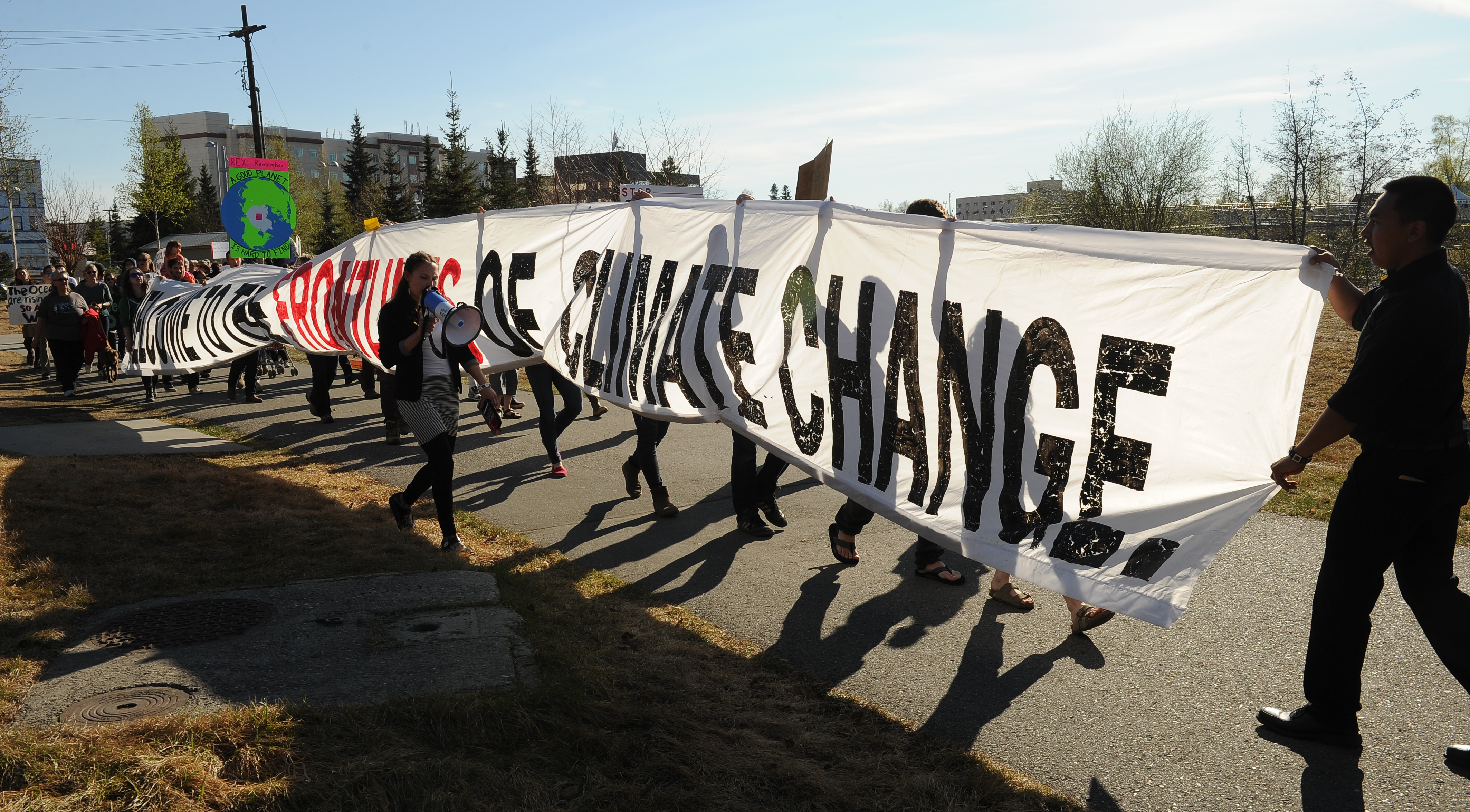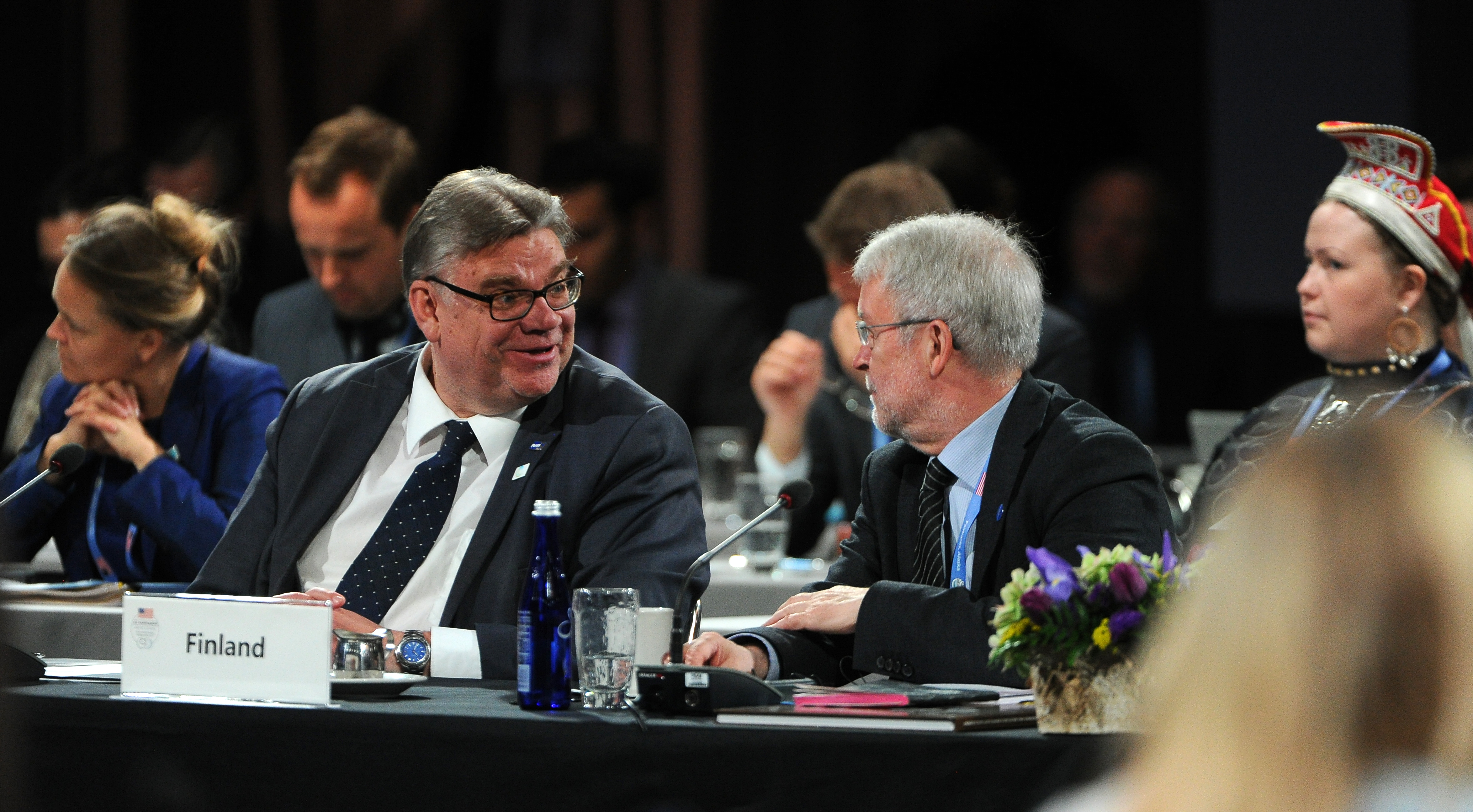Climate concerns top Arctic Council coverage
A rapidly warming climate — and the unwillingness of the U.S. to commit to remaining in the Paris climate agreement — dominated coverage of the Arctic Council’s 10th ministerial meeting in Fairbanks.
The New York Times wrote that Secretary of State Rex Tillerson “gave no hint“of whether the U.S. might stay in the accord, while the Los Angeles Times pointed out that the Fairbanks Declaration, which Tillerson signed, “affirms the need for international action against climate change.”
Canada’s Chrystia Freeland also praised Tillerson’s climate efforts—while declining to comment on his non-committal opening statement, according to a Canadian Press account.

Concern over the future of climate agreements has translated into a set of hope and expectations applied to the incoming Finnish chairmanship. The Guardian described Finland as seeking to combat the “threat of the US and Russia tearing up commitments to combat global warming.”
Meanwhile, the Washington Post noted that Tillerson’s hands were tied by the administration he represents: “Although Tillerson is among the Trump Cabinet officials and advisers arguing that the United States has more to gain than lose by remaining a part of the Paris climate agreement, he cannot promise some of the nations most engaged on the issue that Trump will see it that way.”
Beyond the Fairbanks declaration, the meeting also yielded a binding agreement on science cooperation. The agreement is aimed at “mak(ing) it easier for scientists to travel, bring their equipment across national borders, conduct studies and experiments and share their research and expertise,’ reports Eye on the Arctic. (You can find the agreement on the State Department’s site.)

Official Arctic Council documents weren’t the only ones released in Fairbanks this week.
The World Wildlife Fund released its first-ever scorecard of Arctic Council conservation. Designed to rate the Arctic Council nations on conservation efforts, the scorecard found that while Arctic states do a good job overall, they “need to be more ambitious” about protecting the Arctic environment, according to a KUAC report.
Finally, Thursday’s meeting played out under a shadow cast by long-simmering tensions between the some members, as well as political developments immediately preceding it.
But, Thursday also saw—perhaps in part as a response to those tensions—a public display of goodwill between the U.S. and Russia, in which Foreign Minister Sergei Lavrov left the meeting to attend a wreath-laying ceremony at Fairbanks’ Alaska-Siberia Lend-Lease Monument.